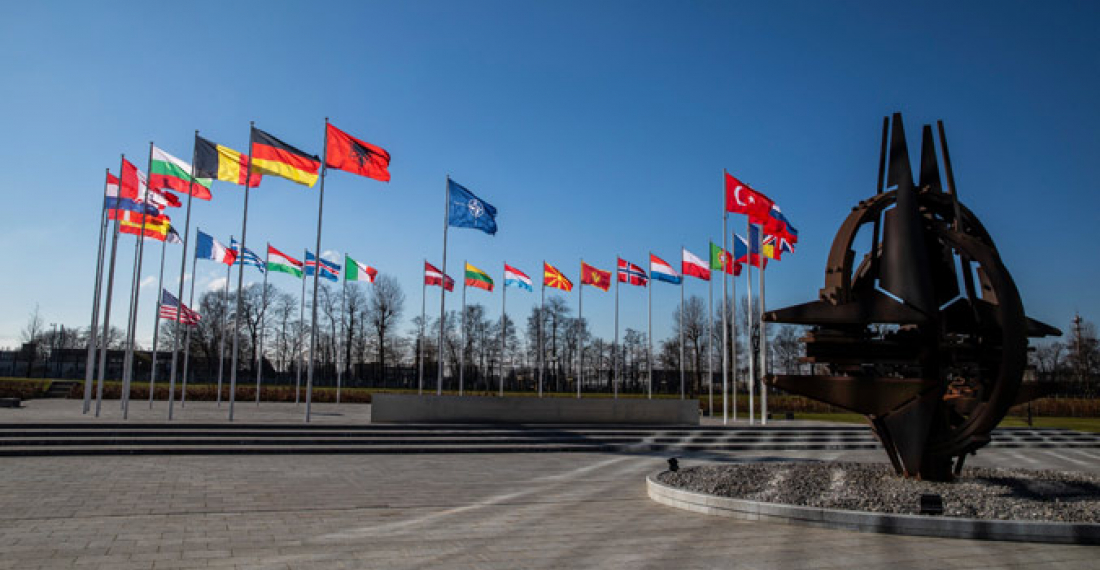"Russia’s aggressive actions constitute a threat to Euro-Atlantic security". This was stated unambiguously in a statement issued by NATO Foreign Ministers at the end of their meeting in Brussels on 23-24 March.
"Terrorism in all its forms and manifestations remains a persistent threat to us all. Assertive and authoritarian powers, and non-state actors, challenge the rules-based international order, including through hybrid and cyber threats, the malicious use of new technologies, as well as other asymmetric threats", the statement added.
The Ministers were meeting for the first time since the election of Joe Biden as president of the United States and the meeting saw the debut of Secretary of State Antony Blinken on the NATO stage.
On the second day of the meeting the Ministers of the allied nations were expected to be joined by partner nations Finland and Sweden, as well as EU High Representative Josep Borrell, for a discussion on Russia.
Ahead of that meeting, NATO Secretary General, Jens Stoltenberg said:
“Russia continues to suppress peaceful dissidents at home, and display a pattern of aggressive behaviour abroad, including with cyber attacks and attempts to interfere in our elections and undermine our democracies. As an Alliance, we remain committed to our dual-track approach to Russia: strong deterrence and defence, combined with openness to meaningful dialogue, including on issues such as arms control.”
The full text of the statement by the NATO foreign ministers says,
- We are meeting in Brussels to reaffirm the enduring transatlantic bond between Europe and North America, with NATO at its heart. We are bound together by our shared democratic values, and by our adherence to the purposes and principles of the United Nations Charter. NATO is the foundation of our collective defence: together we reaffirm our solemn commitment to the Washington Treaty, including that an attack against one Ally shall be considered an attack against us all, as enshrined in Article 5.
- NATO is the strongest alliance in history, guaranteeing the freedom of a billion people, the integrity of our territory, and the protection of our values. NATO is a defensive Alliance and poses no threat to any country. In response to a more dangerous and unpredictable security environment, we are considerably strengthening NATO’s deterrence and defence capabilities, posture and resilience, underpinned by seven consecutive years of rising defence spending, more capable and ready forces, significant deployments in missions and operations, and deeper engagement with partners. We are making good progress on fairer transatlantic burden sharing; we welcome the efforts made by all Allies in Europe and North America that contribute to our indivisible security. We must and will do more.
- NATO will continue to adapt. We face rising threats and systemic competition. Russia’s aggressive actions constitute a threat to Euro-Atlantic security; terrorism in all its forms and manifestations remains a persistent threat to us all. Assertive and authoritarian powers, and non-state actors, challenge the rules-based international order, including through hybrid and cyber threats, the malicious use of new technologies, as well as other asymmetric threats. The Covid-19 pandemic once again illustrates that we face constantly evolving challenges; we will continue to ensure our defence and operational effectiveness throughout this crisis. We pay tribute to all those who combat this pandemic in all our countries and around the world.
- The transatlantic partnership remains the cornerstone of our collective defence, central to our political cohesion, and an essential pillar of the rules-based international order. The upcoming NATO Summit will open a new chapter in transatlantic relations and set the direction for the future of our Alliance to 2030 and beyond. In line with the decision by our Leaders in London in December 2019, we will further strengthen NATO’s political dimension, including consultation. We welcome the reflection process, including the recommendation to update NATO’s Strategic Concept. We will further reinforce NATO’s resilience, military strength and global outlook, connecting more closely with other nations and international organisations that share our goals. We will continue to stand together and to work together, to guarantee our security, prosperity, democracy and freedoms.






